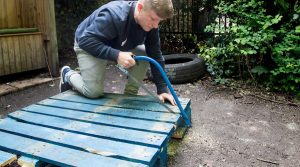 Work Experience has become more important over the years, not only for young people but also employers and education establishments; as well as various reports citing how important encounters with work can be for employability. However, being able to source and find work experience remains a barrier in the development and establishment of some people’s careers which, is why we have put together our useful handout to help people find work experience which, can be found here.
Work Experience has become more important over the years, not only for young people but also employers and education establishments; as well as various reports citing how important encounters with work can be for employability. However, being able to source and find work experience remains a barrier in the development and establishment of some people’s careers which, is why we have put together our useful handout to help people find work experience which, can be found here.
How can work experience support career development? Here are our top five reasons why work experience matters.
- In helping young people figure out how the world works and what is available locally (as a source of informal Labour Market Information). Having an experience of work, whether through guest speakers or visits to local business can help primary aged children start to build a conceptual framework of what is possible. Talking about these encounters and what is needed to progress is useful, in helping children understand what is possible and to build their self-concept.
- For older children in secondary school, the previous is still important but, also work experience enables them to “test out” and explore what it is they might wish to do. It can feed into their consolidation of ideas for the future. From a developmental view point, we are aware that at around aged fourteen or fifteen, students shift into an “explorative phase”[i] where the “try out” what is possible; work experience feeds into this.
- Later, many employers like to see work experience, as evidence of students having an understanding of what it is they are getting into. As well as evidence of a general competence or foundation of skills (which can be built upon), in their area of work. Work experience can sometimes lead to gaining an Apprenticeship through individuals proving themselves which, is one of the reasons for Traineeships[ii] which, allow students to build their employability skills over a period of time (with the hopeful destination of further training or study). It is also why, many study programmes also include work experience as an integral part (these can be found here at: Ready to Work).
- Although there are organisations that can help set up formal work experience, for those in school, more and more Universities are looking to see what experiences potential students have set up for themselves; as this shows commitment, dedication and evidence of a wider (not just cursory) interest in the area being explored. Some of the areas where this becomes an essential part of the application process, include Medicine, Veterinary, Dentistry, the Allied Health Professions[iii] and Engineering (to name but a few).
- It is not only young people who can benefit from work experience, whether you are a student studying for a Degree and undertaking a Year In Industry (YINI), bolstering your studies at college, school or University with, additional work experience outside of your programme and thereby broadening your employability skills (helping you to stand out from the crowd) work experience really can make a difference! Wherever life finds you, we hope that the experiences you have of work, help you to develop and grow your career. If you require Independent Careers Guidance, whether as a student, parent/carer. Educational institution or adult, please contact CXK at info@cxk.org to arrange to speak to a member of our team to discuss your needs and offer support.
- We mustn’t forget that older people considering their options can benefit from work experience as well, whether graduates seeking a change of pathway or those who by design or experience, find themselves having to either try out alternative career routes or enhance their current skills; sometimes as they prepare for retraining. Often alongside such experiences, having support can really add value and aid making decisions about next steps. This can come in all shapes and sizes but, Independent Careers Guidance can be crucial in helping to make sense of the experiences within work, whether in the form of a Schools Adviser working with students or a National Careers Service adviser supporting and helping adults in the community.
 Work Experience has become more important over the years, not only for young people but also employers and education establishments; as well as various reports citing how important encounters with work can be for employability. However, being able to source and find work experience remains a barrier in the development and establishment of some people’s careers which, is why we have put together our useful handout to help people find work experience which, can be found here.
Work Experience has become more important over the years, not only for young people but also employers and education establishments; as well as various reports citing how important encounters with work can be for employability. However, being able to source and find work experience remains a barrier in the development and establishment of some people’s careers which, is why we have put together our useful handout to help people find work experience which, can be found here.